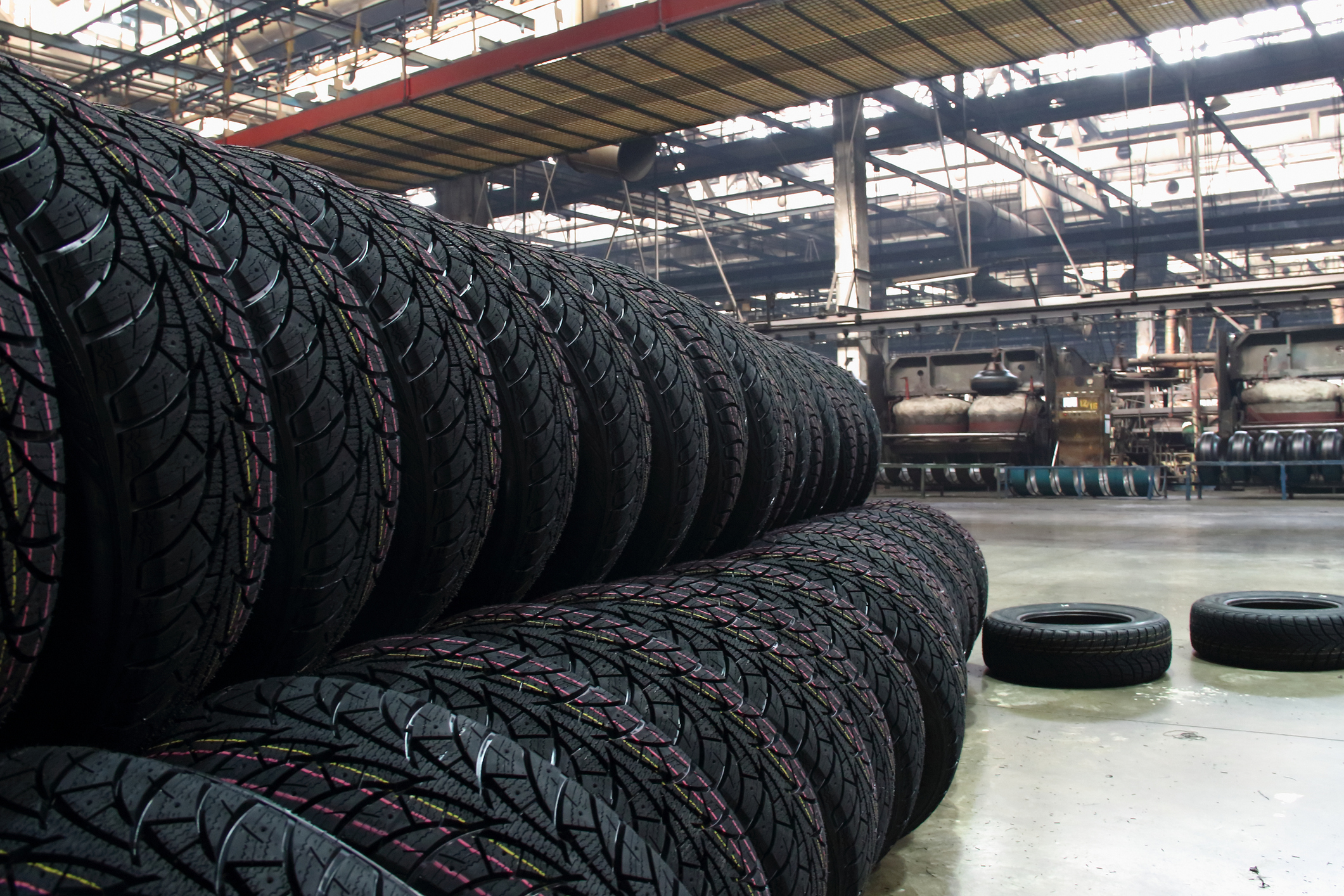Tire manufacturing is a complex process that involves a variety of materials and techniques. Tires are an essential component of any vehicle, and the quality of the tires can have a significant impact on the vehicle’s safety and performance.
The first step in tire manufacturing is the mixing of the raw materials. These raw materials include rubber, various chemicals, and carbon black—a fine powder made from the incomplete combustion of heavy hydrocarbons that serves as a as a reinforcing agent in rubber products. The rubber and other materials are mixed together in large mixing machines to create a uniform compound.
Next, the compound is formed into a “green” tire, or a tire that has been fully manufactured but not yet cured in the final shaping process. Green tires are cured using heat and pressure in a process called vulcanization. The tires are placed in a mold and heated to a high temperature, typically around 140-160°C (280-320°F), while pressure is applied to shape the tire. The heat and pressure cause chemical reactions in the rubber compounds, creating cross-links between the polymer chains and giving the tire its characteristic strength and elasticity. This process can take several hours to complete.
After the tire is cured, it is inspected for defects. Finished tires are inspected using a variety of methods. These include visual inspections, air pressure tests, and tread depth measurements. Tires may also be placed on a test rig and run at high speeds to check for any issues with the tread or sidewalls. More advanced methods, such as X-ray imaging, may also be used to detect internal defects. Additionally, a sample of tires may be taken from each batch and tested on a vehicle to ensure they meet performance standards.
Tire manufacturing is a highly technical process that requires a great deal of skill and experience. The industry is constantly evolving and improving, with new materials and techniques being developed to make tires safer, more durable, and more fuel efficient.
One of the key challenges of tire manufacturing is waste reduction. Tire manufacturers are taking a variety of steps to reduce their impact on the environment. Some examples include:
- Improving energy efficiency and reducing emissions in their manufacturing processes
- Using more sustainable and renewable materials in their tires, such as natural rubber, recycled rubber, and plant-based oils
- Developing tires that are more durable, so they last longer and need to be replaced less often
- Offering recycling programs for used tires to keep them out of landfills
- Investing in research and development to create new, more sustainable tire technologies.
It’s important to note that these measures are not only better for the environment, but also for the companies’ business model as it is becoming more and more important for the businesses to show their commitment to sustainability and social responsibility.
Overall, tire manufacturing is a vital and constantly evolving industry that plays a crucial role in the safety and performance of vehicles on the road. With new technologies and techniques being developed all the time, the future of tire manufacturing looks bright.
Ready to move beyond the basics and improve your manufacturing processes through automation? UMD has you covered. Contact us today to learn more about custom systems to take your operation to the next level.

